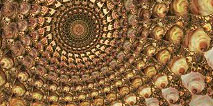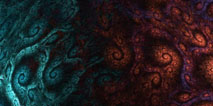book download
Sacred Texts of Hinduism and Tantra, and Revelations of Realized Beings (in original Spanish)
(Light on the Tantras) by Abhinavagupta
1.- TANTRALOKA by Abhinavagupta: classic text of the great Shaiva master, which exposes 37 philosophical stories that explain the process of creation and evolution of the universe, such as the expansion of Shiva’s Consciousness.
AMRUT LAYA of Maharaj Sri Nisargadatta
2.- AMRUT LAYA by Maharaj Sri Nisargadatta: He showed in very simple language that the supreme goal can be reached through the “vihangam marg” or “path of the bird“, that is, through mental reflection or self-inquiry.
APAROKSHAHAANUBHUTI of Adi Shankara
3.– APAROKSHAHAANUBHUTI by Adi Shankara: this text (prakran grantha) introduces us to the philosophy of Advaita Vedanta. It describes a method by which Moksha seekers can directly experience the essential truth of their own nature.
STAVACINTÂMANI by BHATTA NARÂYÂNA

4.- STAVACINTÂMANI by BHATTA NARÂYÂNA:This text is also called “The Jewel of Praise to Shiva”. This text was written around the 7th century AD, and is a compendium of Bhakti Yoga practice through praises of Shiva. Reading this text is a direct way to enter communion with Shiva.
Drigdrisyaviveka by Sankara

5.- Drigdrisyaviveka by Sankara: attributed to Sankara, it is a text that helps to capture, in its full depth, the relativity of perception. In 46 sutras, a profoundly logical working method is unfolded that allows us to understand crucial phenomena of life: the world of the illusory, the laws of karma, the complementation of the known and unknown, internal and external…
हंसोपनिषद्

6.- HAMSA-UPANISHAD is a sanscrit text and a minor Upanishad of Hinduism. It is structured as a disorganized mix of ideas between the Hindu sage Gautama and the divine Sanatkumara, on the journey towards the realization of Paramahamsa.
कैवल्य उपनिषत्
Sorry, not have this book at the moment

7.- KAILVALYA UPANISHAD is another Minor Upanishad of Hinduism. The Upanishad extols Shiva, loneliness and renunciation, and describes the inner state of man in his personal spiritual journey detached from the world. The text is notable for presenting Shaivism in Vedanta.
केन

8.- KENA UPANISHAD is a Vedic Sanskrit text classified as one of the main or Mukhya Upanishads. It is notable for its discussion of attributeless and attributeless Brahman, and for being a treatise on “purely conceptual knowledge“.
मुण्डकोपनिषद्

9.- MUNDAKA UPANISHAD it is considered one of the major Upanishads. Its aim is to teach the highest knowledge, that of Brahman, which cannot be obtained through sacrifice or worship, but only through meditation.
श्वेताश्वतर उपनिषद

10.- SVETASVATARA UPANISHAD it is one of the greatest among the major Upanishads. It was called the Mantra-Upanishad of the Shueta-Ashuatara Vedic school. It is the first systematic textual exposition of the doctrines of Shaivism.
Lalleshvari or lalla

11.- Mystical Poems is a 14th century work written by a Siddha, or realized master. This work details, in a dense style, the true mystical way. It testifies to an inner experience of high intensity, rich, complete, mastered: realization itself.
ABHINAVAGUPTA

12.- Hymns to the Divinity or Anuttarāṣṭikā (on the supreme state of Consciousness) of Abhinavagupta. Anuttarao the state of fullness, peace and luminosity in which one exists in non-dual unity with the absolute, with the supreme principle of all that is: a perfumed invitation to revel in reality, in the manifest exuberance of Shiva.
about our purpose
Our effort is focused on offering content of quality about Yoga expounded in the sutras of Patanjali, el tantra oral de la tradición Shakta del Shivaism of Kashmir, and of the most relevant aspects of the Hindu spirituality. — In our ignorant and complacent Western society, both the Yoga as the Tantra are continually vilified and misunderstood by multiple pseudo-masters, who make, for their own benefit, versions of these ancient traditions.
The time has come to offer content in speech Hispanic nearby, based on the holy scriptures of Hinduism, so that the truth of Traditional Yoga and the tradition of Tantra Shivaita start to take root in our society. — We prostrate before Sri Nityananda and Sri Muktananda, links in our tantric tradition, who encourage you to do this work. But above all, thank you for inspiration from our guru, Swami Satyananda Saraswati, who is the source of guíde, of love and of divine inspiration.



